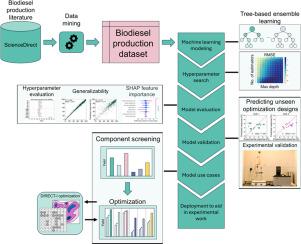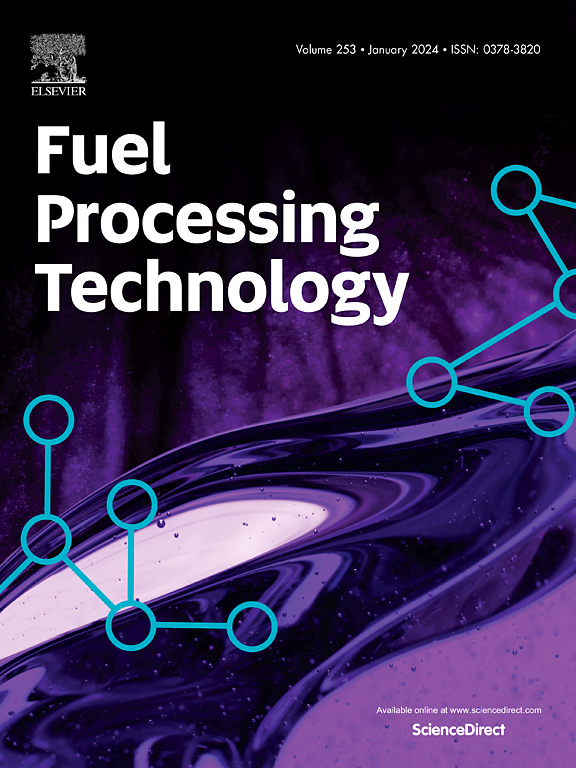Modeling of biodiesel production using optimization designs from literature: aiming to reduce the laboratory workload
IF 7.7
2区 工程技术
Q1 CHEMISTRY, APPLIED
引用次数: 0
Abstract
This study explores non-linear tree-based learning algorithms for modeling biodiesel reactions. A dataset of 3038 reaction samples from 111 published studies was compiled, each optimizing distinct biodiesel reaction systems. Key operational parameters were selected to represent the dataset's diversity. Random forest (RF) and gradient boosting regressor (GBR) models were employed to predict biodiesel yield across the various reaction systems. GBR, with 1000 estimators and a tree depth of 5, achieved the best performance (R2 = 0.744, RMSE = 10.783). The global GBR model was comprehensively evaluated for accuracy and physical relevance, with proposed applications in component screening and reaction optimization using the DIRECT-l (DIviding RECTangles - locally biased version) algorithm. Additionally, an experimental reaction was optimized via the global model and DIRECT-l, then refined using a retrained local model for improved system-specific predictions. These models offer researchers a data-driven approach to selecting and optimizing biodiesel reactions, reducing laboratory time and improving predictive accuracy for specific systems.

利用文献中的优化设计对生物柴油生产进行建模:旨在减少实验室工作量
本研究探索了基于树的非线性学习算法来模拟生物柴油的反应。从111项已发表的研究中编译了3038个反应样本的数据集,每个样本都优化了不同的生物柴油反应系统。选择关键操作参数来代表数据集的多样性。采用随机森林(RF)和梯度增强回归(GBR)模型对不同反应体系的生物柴油产率进行了预测。GBR在拥有1000个估计器,树深度为5的情况下获得了最好的性能(R2 = 0.744, RMSE = 10.783)。对全局GBR模型的准确性和物理相关性进行了全面评估,并提出了使用direct - 1(划分矩形-局部偏置版本)算法在组分筛选和反应优化中的应用。此外,通过全局模型和direct - 1对实验反应进行了优化,然后使用重新训练的局部模型进行了细化,以改进系统特定的预测。这些模型为研究人员提供了一种数据驱动的方法来选择和优化生物柴油反应,减少了实验室时间,提高了特定系统的预测准确性。
本文章由计算机程序翻译,如有差异,请以英文原文为准。
求助全文
约1分钟内获得全文
求助全文
来源期刊

Fuel Processing Technology
工程技术-工程:化工
CiteScore
13.20
自引率
9.30%
发文量
398
审稿时长
26 days
期刊介绍:
Fuel Processing Technology (FPT) deals with the scientific and technological aspects of converting fossil and renewable resources to clean fuels, value-added chemicals, fuel-related advanced carbon materials and by-products. In addition to the traditional non-nuclear fossil fuels, biomass and wastes, papers on the integration of renewables such as solar and wind energy and energy storage into the fuel processing processes, as well as papers on the production and conversion of non-carbon-containing fuels such as hydrogen and ammonia, are also welcome. While chemical conversion is emphasized, papers on advanced physical conversion processes are also considered for publication in FPT. Papers on the fundamental aspects of fuel structure and properties will also be considered.
 求助内容:
求助内容: 应助结果提醒方式:
应助结果提醒方式:


